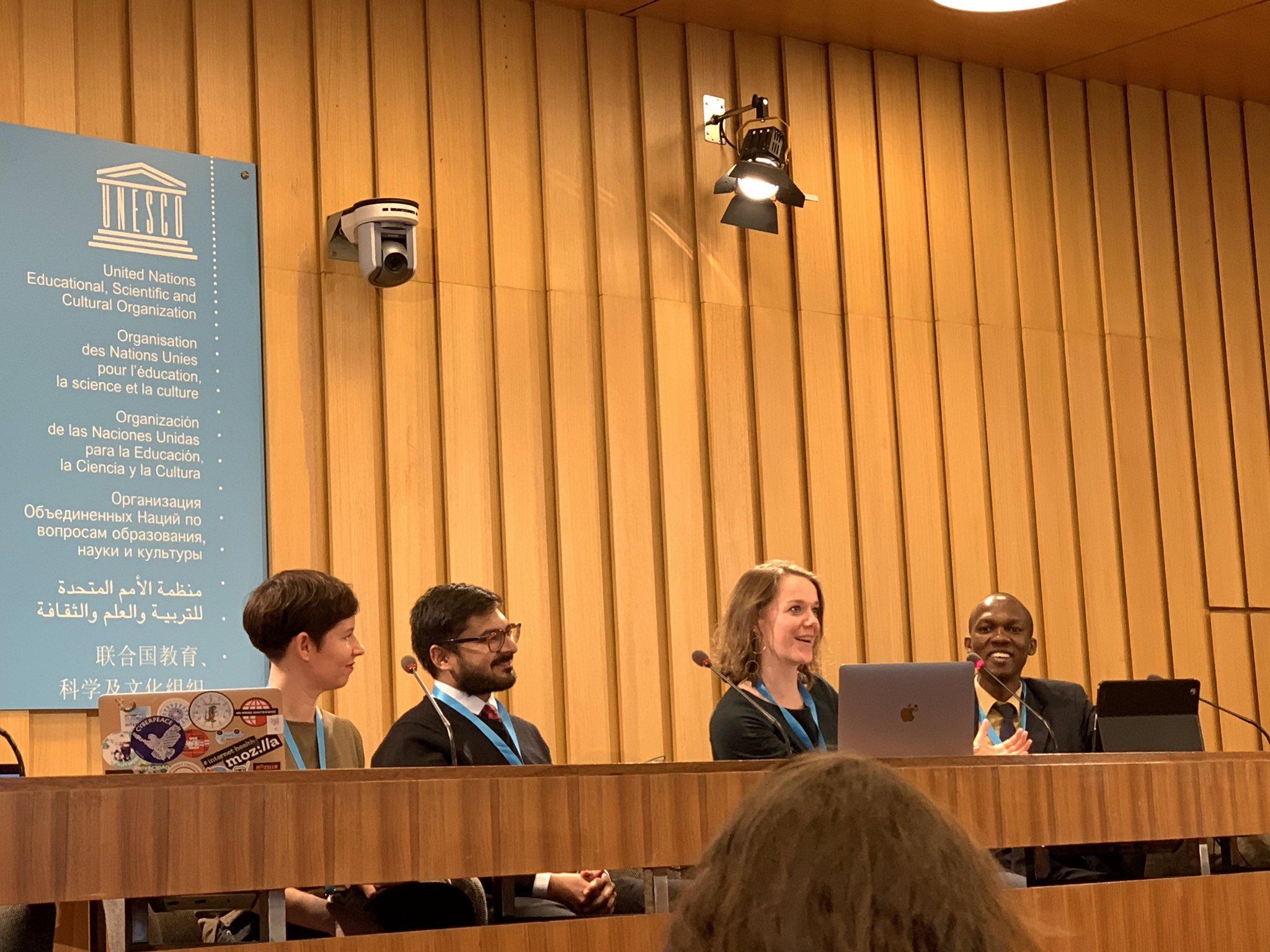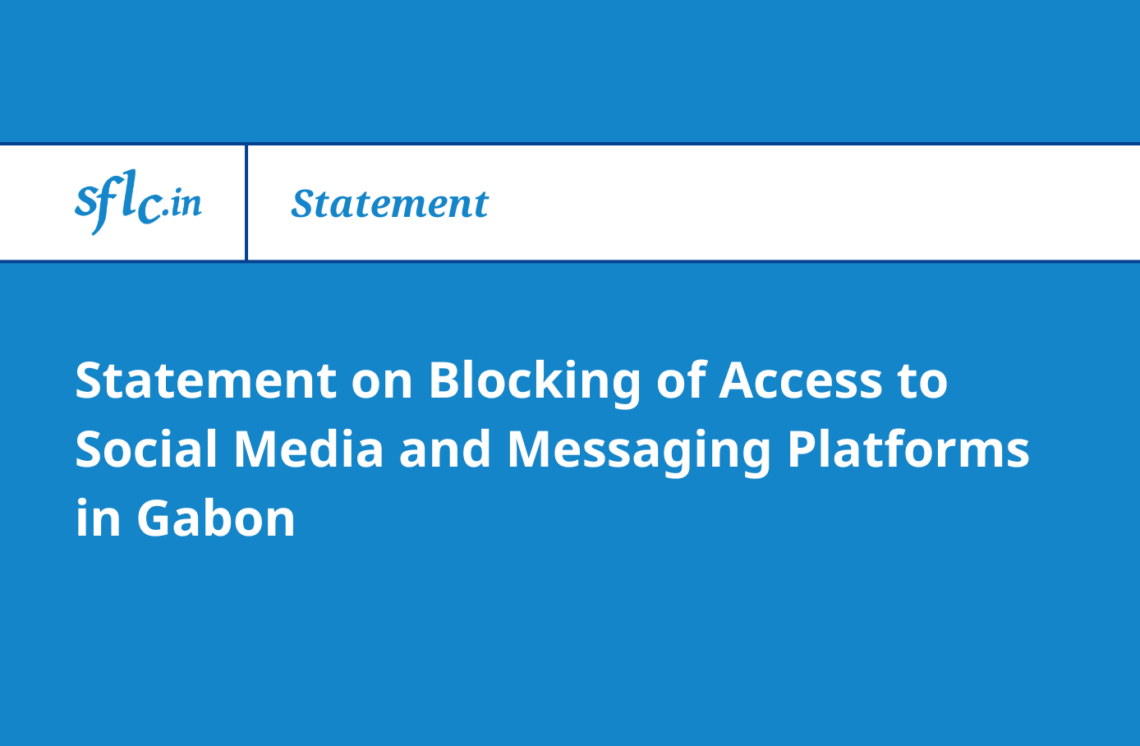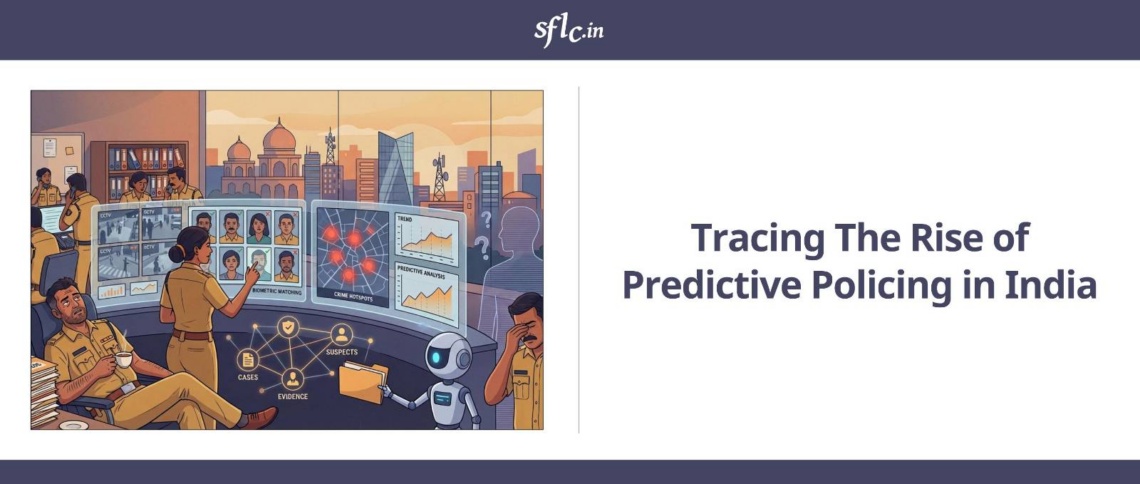The 13th Internet Governance Forum (“IGF”) was hosted by the Government of France at the headquarters of UNESCO in Paris from 12 to 14 November 2018. The overarching theme for the event was ‘Internet of Trust’.
The IGF is a global multi-stakeholder platform to exchange information and share good policies and practices relating to the Internet and related technologies. The IGF also gives stakeholders from all countries, including developing countries, the opportunity to engage in the debate on Internet governance and it contributes to capacity building, allowing these stakeholders to build knowledge and skills that will facilitate their participation in existing Internet governance institutions and arrangements.
This year, at IGF, SFLC.in was part of a panel organized by Mozilla on – ‘Has it become a luxury to disconnect?’ and also gave a lightning talk on ‘Internet Shutdowns in India’. SFLC.in was represented by Shashank Mohan on both sessions at the IGF.
We wish to bring you summaries of these sessions at the IGF, as two posts.
(For a summary of our lightning talk on Internet Shutdowns in India at the IGF in Paris, please click here)
Summary of the panel discussion by Mozilla – ‘Has it become a luxury to disconnect?’
Panel: Cathleen Berger, Mozilla (Organizer and Moderator); Solana Larsen, Mozilla (Speaker); Ephraim Percy Kenyanito, Article 19 (Speaker); and Shashank Mohan, SFLC.in (Speaker).
Key issues discussed by the panel:
-
Has it become a luxury to disconnect? With technology occupying each and every strata of human society and with the push to bring everyone online, do we risk the permanent loss of choice?
-
In a world where convenience and social norms hold high currency in human society, where does privacy stand and is there a global socio-economic divide on access to privacy?
-
How does privacy, or the lack of it, affect the rights of different sections of society, such as – child rights, LGBTQ+ rights, free speech, mobile finance etc.?
Summary
The discussion started with the moderator (Cathleen Berger, Mozilla) requesting each member to discuss a personal story on how they protect their privacy and what have been some challenges associated with such protection. Has it become expensive nowadays to get better protection, both security and privacy wise?
Solana Larsen (Mozilla) narrated her story about how she is navigating the world of technology with her 6-year old daughter. She stated that children are vulnerable whether online or offline and how we choose to connect our children is something that determines how much they are at risk from bad actors. We might not know the extent of the risk of sharing extensive personal data about our children until they’re older, she said. Solana also pointed out to the reverse digital divide, where people who are less affluent and have less access to education and resources, let their kids spend more time with video games and cell phones as compared to more affluent people.
Shashank Mohan (SFLC.in) shared his story on Aadhaar and how after a government mandate, he had to enter the Aadhaar program to link his tax filings with the Aadhaar ID. He further went on to talk about the Indian Supreme Court’s privacy judgment, wherein the court recognized privacy to be a fundamental right under the right to life and liberty. He also pointed out that a couple of months back the Supreme Court of India upheld the constitutionality of the Aadhaar program by allowing the Indian government to mandatorily ask citizens to link their Aadhaar Ids with subsidies and benefits. With benefits, subsidies and tax filings linked to the Aadhaar, most Indians have been forced into the government’s Aadhaar scheme, without an option of opting out, he said.
Ephraim Percy Kenyanito (Article 19) talked about his experience in Kenya and how in 2010-11 citizens were being asked by political parties to be registered with them. Political parties were often getting personal data from telecom companies, as most citizens were registered with telecom companies to get access to mobile money. He said that this debate gave an insight into how financial inclusion was deeply linked with privacy and data protection. Similarly in 2014, in Kenya the government issued a contract for surveillance cameras to increase police protection and that time he tried to talk to the government to ensure that such data was secure and was not used to identify other common citizens.
Subsequently, the moderator (Mozilla) raised the question about the definition of privacy around the world. Shashank (SFLC.in) pointed out that according to the Supreme Court of India, privacy is defined to be strongly linked with the dignity and integrity of people and is declared to be a fundamental human right integral to the right to life and liberty. The moderator (Mozilla) pointed out that in Germany privacy was deeply entrenched in the social fabric of the larger community. Solana (Mozilla) added that as per her, currently, people are extremely confused about how much privacy they want and whether privacy is a good thing or a bad thing. Every year people’s perceptions are changing – some people value security more than privacy and the others wish for stronger anonymity and encryption norms. She stated that, we want connectivity and we want people to be connected, but at same time, we’re also trying to find a balance and help decision makers navigate the space without falling into the trap of over reliance or censoring and limiting movement and freedom of thought and speech.
Shashank (SFLC.in) also pointed out that in the Aadhaar case, the Supreme Court of India has stated that under the scheme only minimal data was collected. With finger prints, iris scans and demographic information – how is the collection of data minimal, he questioned. With concepts like data localization and social media monitoring hubs, the Indian government was pushing for increasing access to the personal data of Indian citizens.
Key takeaways:
-
Privacy is a concern across the world, but different countries have varying outlooks of its importance. In parts of the world like Kenya and India, it can be said that disconnecting is a luxury.
-
People with lesser access to education and resources form part of a reverse digital divide, wherein children from such families may be at a greater risk as they tend to spend more hour interacting with video games or cell phones.
-
We need to encourage the adoption of social norms around data sharing and raise awareness about privacy concerns.
-
Governments and corporations need to be challenged and held accountable for adoption of policies which are not privacy friendly. Collection of data and intrusions to privacy need to be necessary and proportionate.
For our post on the key highlights of the Aadhaar judgment, you may click here and for our press release on the privacy judgment of the Supreme Court of India, you may click here.




